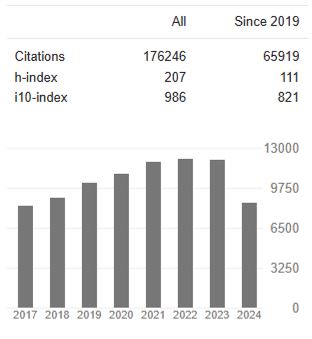Assessment of Physicians Knowledge, Attitudes, and Practices Regarding Smoking Cessation Management in the Gaza Strip
Abstract
Khaled Hani Alkhodari, Bakr Khadr Abo Jarad, Ahmed Ismail Al-Bahbhani, Sadi Yehia Nkhala, Ali Naim AlBuhisi, Khamis Abdelkarim Elessi
Background: Despite its negative effects, approximately 23% of Palestinians (≥ 18 years) smoke cigarettes. Studies have shown physicians to be an important channel for smoking cessation intervention. This investigation examines physicians’ smoking-related knowledge, attitudes, and behaviors in the Gaza strip (Palestinian Territories).
Methods and Findings: A convenience sample of 154 physicians in medical and surgical units took part in this investigation (87.7% response rate). The data show that 37.8% of physicians in Gaza smoke, and most of them about 72% smoke in the hospital’s public spaces, thereby implicitly giving public approval for smoking. While 82.4% reported that they advise patients who smoke to stop, the majority (59%) also believe that their own smoking habits negatively influence the impact of that advice. Unfortunately, our survey showed that physicians’ knowledge levels towards smoking addiction and management were lower than expected (e.g. only 34% knew that nicotine dependence is a psychiatric disorder that necessitates treatment). The physicians in this study believed that the primary barriers to failure of their patients’ smoking cessation were the perceived lack of will (81.3%), and the strength of patients’ addiction (67.9%). Moreover, (61%) of physicians did not spend enough time to convince their patients to quit smoking.
Conclusion: Smoking is common among Gaza-strip physicians, and unfortunately, most of them smoke in the hospital’s public spaces. Many obstacles face the smoking cessation program that some physicians linked it to patients, and others linked it to the health-care system. Furthermore, smokers in Gaza receive poor care regarding assessment, referral, and management of their smoking habit.




